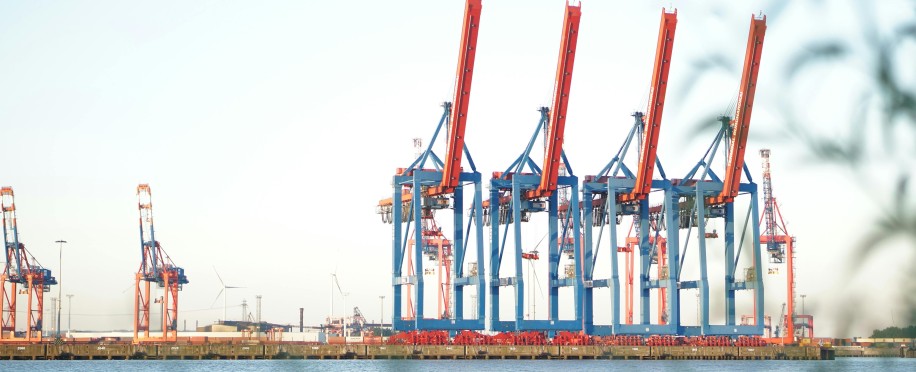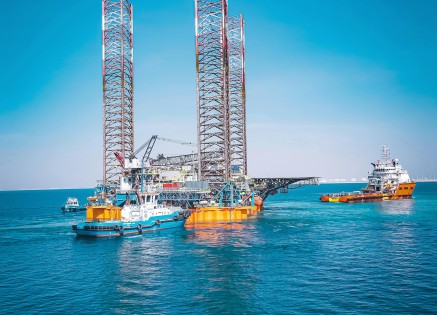Copyright © 2026 lmitac.com All Rights Reserved. Contact - Terms and Conditions - Privacy Policy - Quality Policy - Become an instructor - Vacancies - Sitemap
London Maritime Academy is a trade name for London Premier Groupversion: 2.9.0
London Maritime Academy is a trade name for London Premier Group

Posted on : 7/17/2025, 2:47:48 PM
Last Update : 7/17/2025, 2:47:48 PM
Gulf ports move the world. Every day, they handle vast volumes of cargo, connecting producers and consumers across continents. Yet delays keep stacking up. Some are severe, some are weather-related, and others come down to outdated systems or misaligned international policies. Regardless of the cause, one thing is clear—shipping delays hurt both businesses and customers. Late packages, stalled freight, and rising costs all chip away at trust and efficiency. It's no longer just about speed. It's about control, clarity, and cooperation across the chain.
Across the Gulf, ports must manage growing volume, complicated customs procedures, and unpredictable events such as labor strikes or natural disasters. Missed dates, incorrect documentation, and inaccurate schedules all contribute to rising refund requests and disappointed retailers. The impacts of each delay are amplified when conditions shift suddenly. From FedEx to OnTrac, every carrier faces the same challenge: how to mitigate disruptions and keep products arriving on time.
Technology is no longer a luxury for Gulf logistics. It’s a basic requirement for keeping goods moving. Advanced tracking systems have become vital. They allow operators to follow each shipment in real time, reducing the risk of delayed deliveries. When disruptions happen—caused by winter storms, labor gaps, or regional bans like India’s—ports equipped with intelligent tools respond faster. Sensors at warehouses signal slowdowns. Predictive alerts help avoid chokepoints. Automated scheduling software improves flow across the port, giving each carrier a clear timeline. These upgrades don't eliminate every problem, but they give the sector a fighting chance.
From New Zealand to Canada, regional case studies show how smart ports with robust tracking systems, better options, and transparent coordination platforms are outperforming legacy models. Gulf countries have the potential to do the same by applying insights based on successful frameworks and ensuring operational consistency.
Decisions made in the dark lead to disruptions. That’s where analytics shifts the game. Gulf operators are beginning to track patterns, not just packages. They’re building insight from days of historical data to prepare for the next delay before it hits. When they see a pattern of late shipments from a specific route, they don’t guess. They adjust. Smart tools now identify processing slowdowns. They flag costs creeping up. They show that one company in the chain causes hold-ups for all others. And they make these findings available in near real time, so action can happen before problems snowball.
Reports pulled from major shipping platforms, Reddit logistics threads, and Alyssa’s transport review article show a growing frustration over lost bags, broken guarantees, and delays in mail delivery. Companies need to learn not only from internal systems, as well as structured insights offered by Shipping Management Courses in London, but also from user-facing platforms to understand what’s causing breakdowns.

Technology can’t fix everything. Policies still run the show. In the Gulf, rules differ from port to port, and that inconsistency causes serious slowdowns. A package held up for clearance at one terminal may glide through another. These gaps frustrate customers, strain resources, and add uncertainty to every shipment. Regional standards that align with global frameworks, such as those used in the EU, seen during the IMO shift in 2020, would help. More importantly, communication between regulatory bodies and operators needs work. Without that, even well-designed systems stall. Ports must stop functioning in isolation.
Some airports and depots have experimented with unified digital documentation platforms that help manage pickup, delivery, and customs together. These solutions offer a window into what’s possible when integration replaces fragmentation.
Solving shipping delays requires more than one player stepping up. Companies, governments, and port managers must act in sync to deliver shipments in their expected time. First, each group needs to know what the others are doing. One of the most common reasons that affect shipping delays is customs delays. Nevertheless, a delay at customs isn’t just a customs issue—it affects inventory levels, staffing, and deliveries across the network. Collaboration should be built into every contract, every update, and every alert. Everyone needs to receive updates on ship status, and these should be quick and transparent. Investment should go into shared tools. When one center has visibility, its partner should too. And when something goes wrong, responses should be collective, not isolated.
Solutions tested by Amazon, smaller retailers, and logistics experts emphasize the importance of scenario planning, notice periods, and shared response teams to reduce the effects of unforeseen disruptions. Rbtanning logistics audits show that stakeholder contact improves significantly when visibility and accountability are distributed.
Delays happen. But not every delay needs to disrupt an entire supply system. Resilience is the difference between a shipment that gets delivered late and one that never arrives at all. Building this strength takes commitment. It requires alternate sourcing channels, adaptable transportation, and infrastructure that doesn’t break with the first storm or policy shift. In the Gulf, where trade volumes are massive and margins often tight, this resilience isn’t a luxury. It’s the only way forward.
Effective models now include refund pathways, backup carrier networks, and forecast-based distribution models that expect temporary shutdowns or political bans. These mechanisms enable retail ecosystems to continue even when the main chain is under pressure.
Shipping delays will never disappear completely. But the Gulf can reduce its impact—if the sector leans into technology, embraces smart policy reform, strengthens relationships across the supply chain, and stays grounded in reality. Real progress will not come from isolated fixes or broad promises. It will come from systems that learn, people who adapt, and strategies that serve customers first. In every shipment, every port call, and every update, the region has a chance to build something stronger than before.